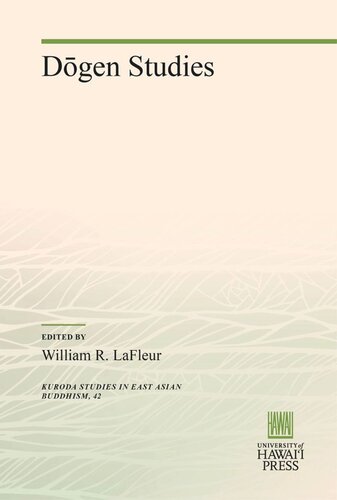

Most ebook files are in PDF format, so you can easily read them using various software such as Foxit Reader or directly on the Google Chrome browser.
Some ebook files are released by publishers in other formats such as .awz, .mobi, .epub, .fb2, etc. You may need to install specific software to read these formats on mobile/PC, such as Calibre.
Please read the tutorial at this link: https://ebookbell.com/faq
We offer FREE conversion to the popular formats you request; however, this may take some time. Therefore, right after payment, please email us, and we will try to provide the service as quickly as possible.
For some exceptional file formats or broken links (if any), please refrain from opening any disputes. Instead, email us first, and we will try to assist within a maximum of 6 hours.
EbookBell Team

5.0
68 reviewsThe induction of Dо̄gen into the modern academic world, or perhaps more accurately, the academic world's first real engagement with Dо̄gen came about 1924 when Watsuji Tetsurо̄ (1889–1960) published a provocative essay entitled "Shaman Dо̄gen." It was this essay that to many of Watsuji's contemporaries seemed to rescue Dо̄gen from what they considered to be his entrapment for nearly seven centuries in the sectarian embrace of the Sо̄tо̄ school. Watsuji insisted that Dо̄gen no longer should be thought of as belonging exclusively to the monastic community. Claiming, instead, that Dо̄gen "belongs to mankind," Watsuji with this declaration initiated the non-sectarian study of this thirteenth-century figure and in effect commenced what are called Dо̄gen Studies [Dagen kenkyii] in modern times.
As one way of exploring what it might possibly mean to say that Dо̄gen "belongs to mankind," the Kuroda Institute held a conference on Dо̄gen at Tassajara Springs, California from October 8 to 10, 1981. The essays of this volume are a part of its result.